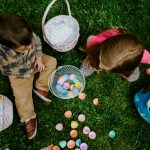World Autism Awareness Day, highlights the need to help improve the quality of life of those with Autism so that they can lead full and meaningful lives as an integral part of society. To mark Autism Awareness Day, children’s author Sivan Hong shares her thoughts on the power of neurodiversity and positive parenting.
Language holds power. We see this every day on our social media feeds, whether it’s something going viral on twitter or a meme on IG that speaks to exactly what we are feeling in the moment. That is why I was so drawn to the term neurodiversity.
Neurodiversity is a science-based concept that says that brain/learning differences, like Autism, ADHD, Dyslexia, etc. are biologically normal or mainstream. It frames the challenges that come with neurodiversity as differences instead of framing them as deficits. For me, this was a huge “ah-ha” moment. This one word told me that there was nothing “wrong” with my brain, it was just different – and that was okay. Different is normal, not wrong, not broken, not in need of fixing. I can work with different.
As a mother of two neurodivergent kids, it was critical for my boys to grow up feeling that same sense of pride about their brain differences; it was not enough that I felt this way. After all, why should they think of themselves as broken, when they are not? Their brains can do incredible things. They see the world in a different way. There are so many strengths in brain differences, that I wanted them to see those strength within themselves and build on them. The challenge for me, as a mother, was how do to that.
Like many parents, when I looked for ways to teach my kids, I turned to stories – I turned to books. Unfortunately, I soon discovered that there were not a lot of picture books that showed neurodivergent characters. (To be clear, there are some incredible stories out there, but not nearly enough.) I wanted books that could mirror my children’s experiences wearing headphones, chewing gum, playing with fidget toys and their comfort in routine and schedules. I wanted to provide them these types of mirrors to normalize their experiences, so that they could see picture book characters being just like them. I wanted them to see that their experiences while different, were also normal.
I never set out to be an author/illustrator, but I became one to fill a gap that I saw. I created the Super Fun Day Books series to show neurodivergent children facing challenges and overcoming them. My books are structured like social stories, which is a tool used in special education to help teach children about something that may be hard. The illustrations in the books are purposefully simple to help keep a focus on the story and the font is dyslexic friendly. All the books are available as audiobooks to make them accessible to all types of learners. (I happen to consume books best in audio format myself and am so thankful for that technology).
There are days when my children are proud of their neurodiversity and there are days, like with all children, they just want to be like everyone else. I hope that my books help other parents, educators, and therapists, support children so that they more days when they feel proud of their brain differences.
But it cannot just be about neurodivergent kids learning about themselves – neurodiversity should be understood by all children (and adults). Other children see the headphones, the gum chewing, the weighted vests, and wobble seats. Books are also windows into someone else’s life, and I love hearing about how my books help start conversations with neurotypical kids about the differences they may see with their neurodivergent peers.
Afterall, as a mother, I can help change how my kids feel about themselves but the world around them has to share in that positive message. It will take all of us to make that kind of change.
This article is by Sivan Hong, author of the Super Fun Days Books, a collection of best selling social stories about neurodiverse kids (www.sivanhong.com). Sivan shared her story on behalf of Parenting Limerick.




